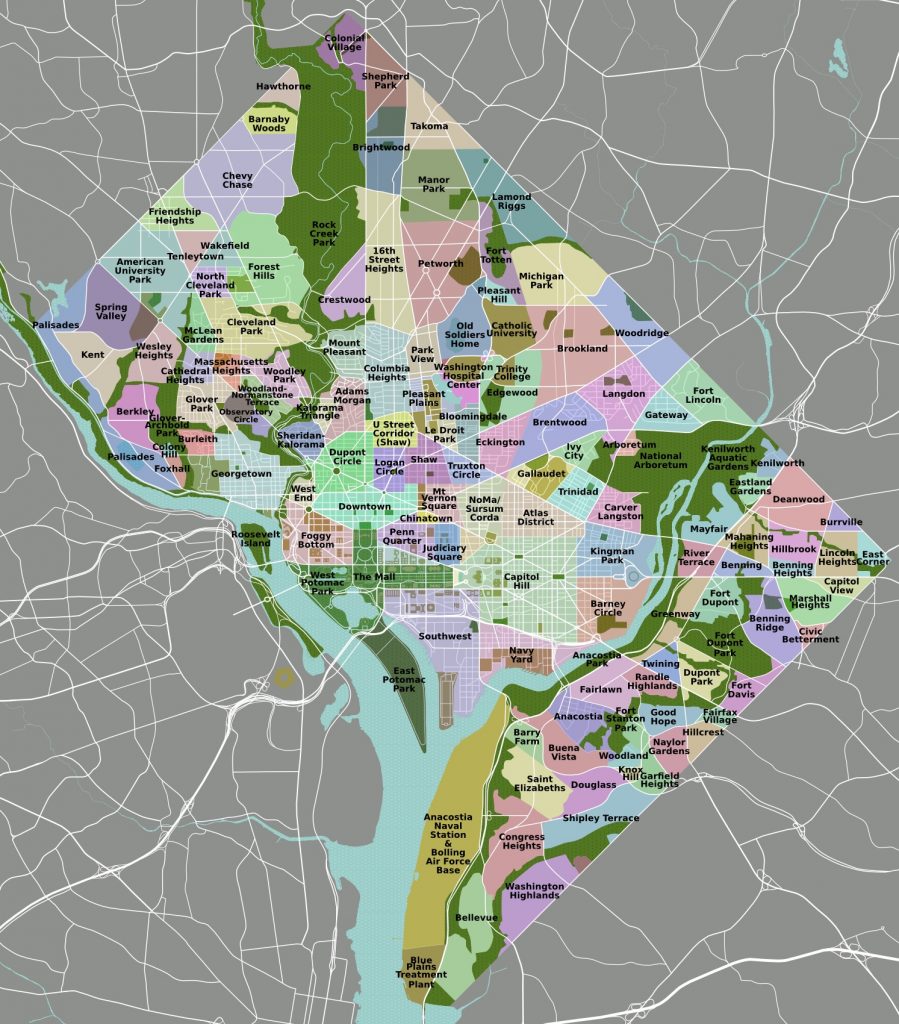Vigorous commenter Debbo forwards Vox‘s summary of this Harvard Law Review note offering a radical plan to amend the Constitution to make our federal representation more equal. The note is anonymous, and I don’t usually dabble with anonymi, but the proposal is interesting enough that I’ll give Harvard Law Review a pass and spend a moment on the proposal.
I say the plan is “interesting” in the understated dismissive sense of the word. It’s crap. It pursues moral ends—equal representation for all Americans—through falsehood based on partisan interests. The fact that the problem we seek to solve—unrepresentative, undemocratic institutions—has been locked in by antidemocratic forces playing similar games in the past does not make this plan moral.
Here’s the gist:
Harvard Law Review identifies multiple examples of unfairness in our national political system.The Electoral College, two Senators for each state, no voting power for citizens in our territories—all of those Constitutional provisions disenfranchise Americans. The states that benefit from that unfairness will block any amendments to those provisions. An Article V convention’s supermajorities are too hard to attain (and, I will add, there are too many corporate fascists advocating that route for me to want to take it). The note thus proposes turning Washington D.C. into 127 fake states:
Congress should pass legislation reducing the size of Washington, D.C., to an area encompassing only a few core federal buildings and then admit the rest of the District’s 127 neighborhoods as states. These states — which could be added with a simple congressional majority — would add enough votes in Congress to ratify four amendments: (1) a transfer of the Senate’s power to a body that represents citizens equally; (2) an expansion of the House so that all citizens are represented in equal-sized districts; (3) a replacement of the Electoral College with a popular vote; and (4) a modification of the Constitution’s amendment process that would ensure future amendments are ratified by states representing most Americans [Anonymous, “Pack the Union: A Proposal to Admit New States for the Purpose of Amending the Constitution to Ensure Equal Representation,” Harvard Law Review, 2020.01.10].

Turning Michelle and Barack Obama’s block into a state is bonkers and false. All those little places are not states. But the suggestion underscores the absurdity and unfairness of carving out some low-population region that can hardly sustain itself as an independent governing entity just to bolster the political agenda of one political clique.
As Ian Millhiser points out, we South Dakotans should recognize this unfairness keenly, because here we are with our own star:
Indeed, there is a long history of partisans selectively admitting new states in order to pack the Senate with their own fellow partisans. In 1864, for example, Republicans admitted the state of Nevada — then a desert wasteland with only several thousand residents — giving themselves two extra Senate seats in the process.
Similarly, the reason why there are two Dakotas is because Republicans celebrated their victory in the 1888 election by dividing the Republican Dakota Territory up into two states, thereby giving themselves four senators instead of only two [Ian Millhiser, “A Modest Proposal to Save American Democracy,” Vox, 2020.01.14].
American democracy is rigged, and we South Dakotans are the results and beneficiaries of that rigging. I hope we don’t have to resort to more rigging to fix that unjust system. Can unrig it, by rallying the disadvantaged to vote and by rallying enough of the advantaged to change their vote, acknowledge their unfair privilege, and heed the moral call to surrender that privilege?
I know—idealism helps get us into these messes and may not be particularly helpful in getting us out. Giving the folks who created two Dakotas for partisan gain a taste of their own medicine might be good for everyone. But every time we play tricks to achieve our ends, we set precedent for future actors who may have less savory ends to play similar or bigger tricks.
Besides, this trick wouldn’t work. South Dakota and other states who benefit by unfarily multiplying their voting power in the Electoral College and the Senate would see the DC carve-up coming, convene special sessions of their Legislatures, and deem each of their counties separate states. South Dakota, North Dakota, Montana, and Wyoming explode themselves into 198 states, and the DC choppers are foiled! (But then someone has to build a Walworth State Legislature in Selby, and then, holy cow….)
Don’t let the absurdity and backfiring immorality of the Harvard Law plan obscure the real problems it seeks to remedy. Our Constitution is failing to produce the equal representation that all Americans in our changing society deserve.

Consider just the argument against the Electoral College:
The HLR note opens with this indictment: “For most of the twenty-first century, the world’s oldest surviving democracy has been led by a chief executive who received fewer votes than his opponent in an election for the position.” There is no good reason for a democracy or a republic to choose the second-place finisher as its leader. The Electoral College was created to protect slavery, but even if you try to claim the Electoral College somehow usefully safeguards small states from large-state encroachment, I cannot identify any tangible benefit that small states have derived uniquely from electing the loser of the popular vote. South Dakota kids move to Minneapolis under Trump just like they did under Obama, Bush, Clinton… and on that note, in the modern, mobile society, why should those kids or RVers or any other American see his or her vote become worth less just because he or she seeks opportunity in another state? The Electoral College creates voting inequality and gives losers power for no good reason. It should be abolished.
The note’s authors acknowledge that we may easily respond to their modest proposal as “a fraud—a contrived, pie-in-the-sky gimmick to make an end run around Congress—as foolish as it is unrealistic.”
How could we let a bunch of new, low-population states control the government?
But this is precisely what we allow today.
The current system of representation allows for a minority population to impose its will on a majority in a way that is deeply undemocratic. It permits the disenfranchisement of some citizens and the overrepresentation of others, and it allows a party receiving fewer votes than its opposition to control each branch of the government. It does not have to be this way [HLR, 2020.01.10].
America doesn’t have to be this way. We can rebuild a 21st-century America that affords everyone equal representation. Carving up a hundred or a thousand ersatz states isn’t the way to do it… but maybe we can find a way to add every voter’s star to the American flag.
Interesting discussion, Cory. A couple of pedantic notes:
I believe the Constitution prohibits subdividing existing states into additional states. (That’s one of the problems the would-be splitters in northern California and southern Oregon would run into when trying to create their wingnut utopia of Jackson.) That is probably why the Harvard Law discussion focused on the non-state District of Columbia.
Although I have no doubt states were created for partisan advantage (we were creating Slave vs. Free states for a while, after all), in the 1890 census just after statehood, South Dakota had a larger population than Rhode Island, Vermont, Oregon, Delaware, and a handful of other states. Even smaller North Dakota had a higher population than Delaware and several other states. Of course, the problem is that populations grow at uneven rates, and state boundaries are set in stone, so the population’s representation in the Senate gets wildly out of whack.
The proposed solution also assumes, incorrectly, that regional votes are static. This isn’t true. What this means is that redistricting will have to occur to at regular intervals. The problem with this is clear: the Supreme Court has struck down narrow instances of gerrymandering, but has generally given leeway to redistricting efforts even if the impact of those efforts have had negative impacts on representation. My argument here is simple: besides being an insanely expensive effort, this process would also be open to political pressures. Not a good idea.
Wow, this sounds more like a publication from the Harvard Lampoon than the Law Review.
https://www.harvardlampoon.com/
The electoral college and the Connecticut Compromise were both early forms of affirmative action. Except, when they were adopted, they were designed to protect whites from whites, or should we say rural from urban.
However, today this primitive affirmative action has become a reality which sadly protects whites from blacks with the help of dead hand control from a bunch of once land owning white leaders, who were the only ones who could participate in our political system in their time.
Conservatives often indict affirmative action as some form of social engineering dreamed up by mid 20th century liberals, but what they don’t want to admit, or understand, is that for the most part it was a core group of their natural constituency, white folks, who first came up with this idea of affirmative action and implemented it sometime ago through the creation of the electoral college and the idea that every state would have two senators.
The great irony of this dead hand control today is, however, that instead of trying to protect a class from itself, rather it is protecting a class of race from an other class, or classes, of races, and thus, has demonstrated a new and emerging form of racial discrimination, which is institutional in nature, but masked as fair to all somehow.
I am a strong believer in affirmative action to bring everyone to the table, but this primitive form from our fore fathers denies the adequate representation of the true majority by over empowering a white constituency, which will soon be at best a plurality, but with apparent institutionalized majority control for now.
Perhaps, demographics overtime will make my concerns moot at best as a greater growth in the non white population of our country continues, but how long will that take for this to happen? And in the mean time, can our country hold itself together as our political system grows in its lack and ability to mirror its true constituencies?
Today, we still have a rural versus urban problem, but increasingly this is less about 18th century white landowners versus white city speculators and more about white versus black. And dead hand control is increasingly protecting an eventual plurality at best, so that they can control and not just be some of the chairs at the table.
Was it a commenter here who suggested turning the Senate into a version of the advisory British House of Lords and apportion the House of Representatives evenly via population?
That could work. Of course the Constitution would require amending. Oh yeah. The Electoral College has got to go.
All we need is to remove the artificial cap on the size of the House. We don’t need convoluted solutions or removal of the EC.
Cory–if I read the article correctly, a state can’t apportion itself into multiple states (or that would likely have been done years ago), but DC actually can because it’s not a state. This change obviously isn’t going to happen, regardless, but you outline the problems with our current system very well.
At any rate, the fight for democracy reform must continue, discouraging as it so often is…
Drey, see Article IV, Section 3: “New states may be admitted by the Congress into this union; but no new states shall be formed or erected within the jurisdiction of any other state; nor any state be formed by the junction of two or more states, or parts of states, without the consent of the legislatures of the states concerned as well as of the Congress.” If the South Dakota Legislature says, “Make us into 66 states!” Congress can o.k. that request.